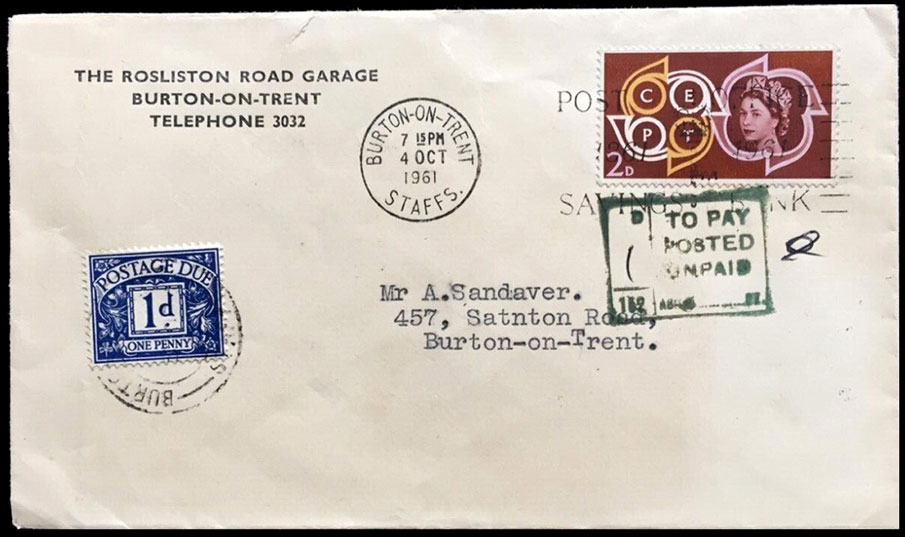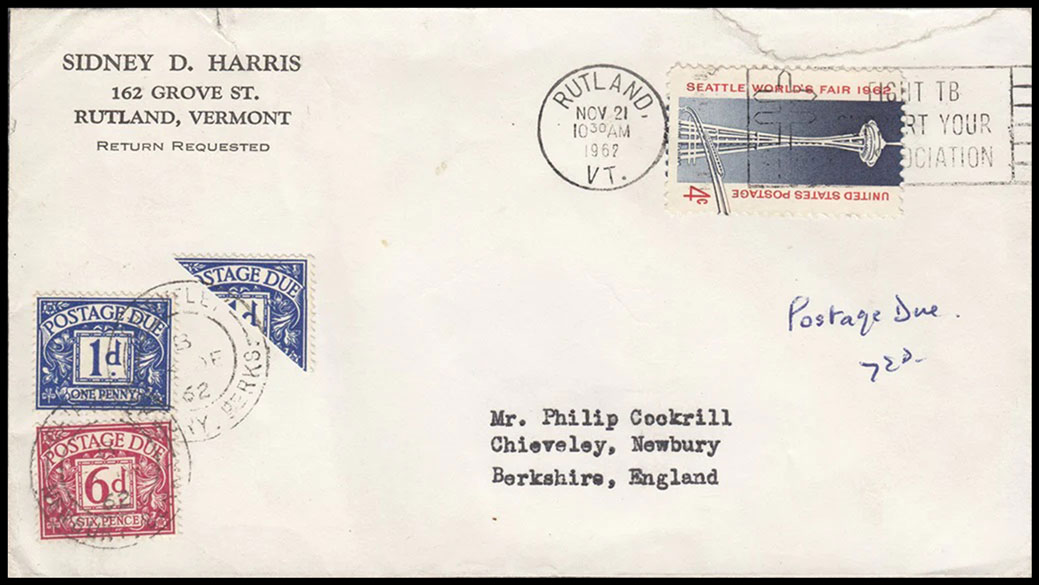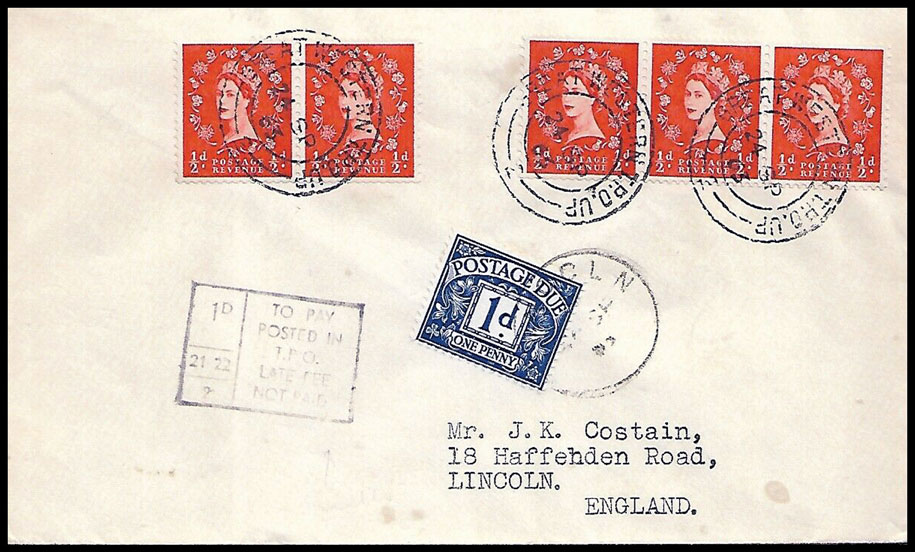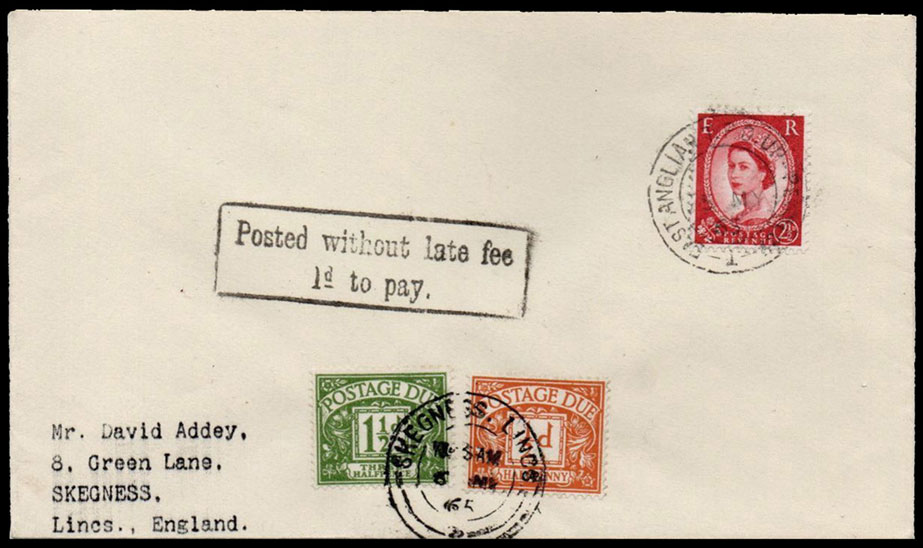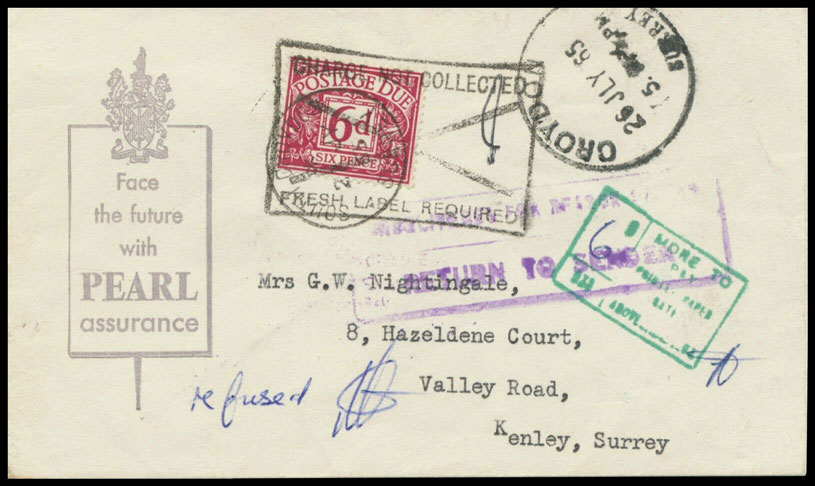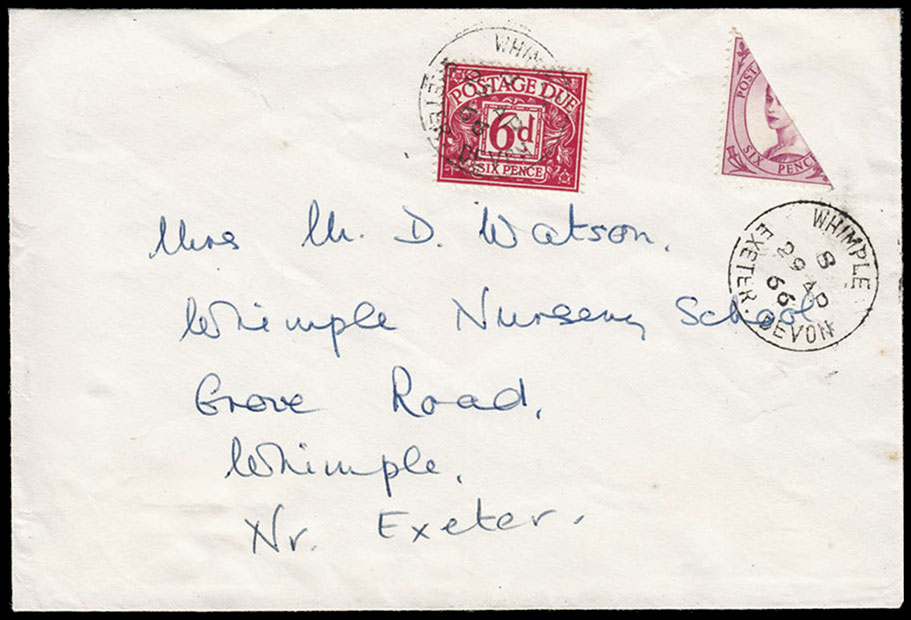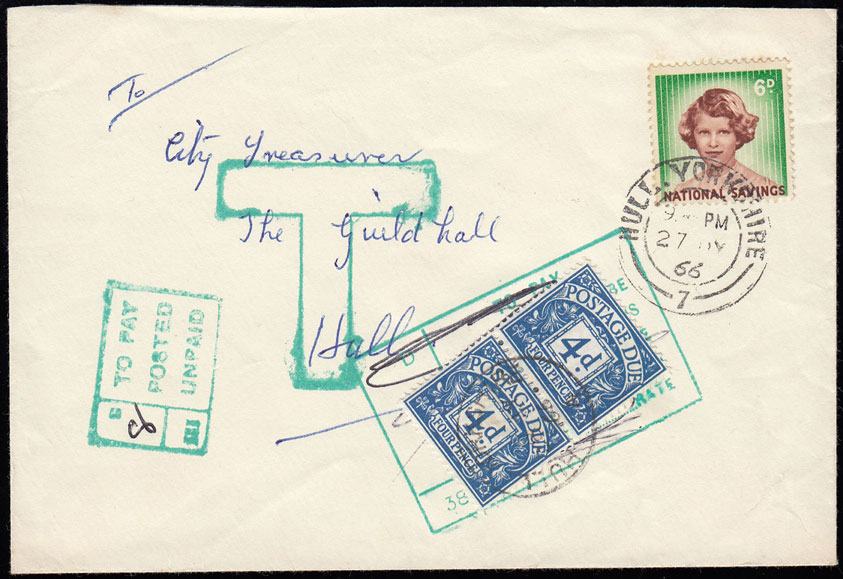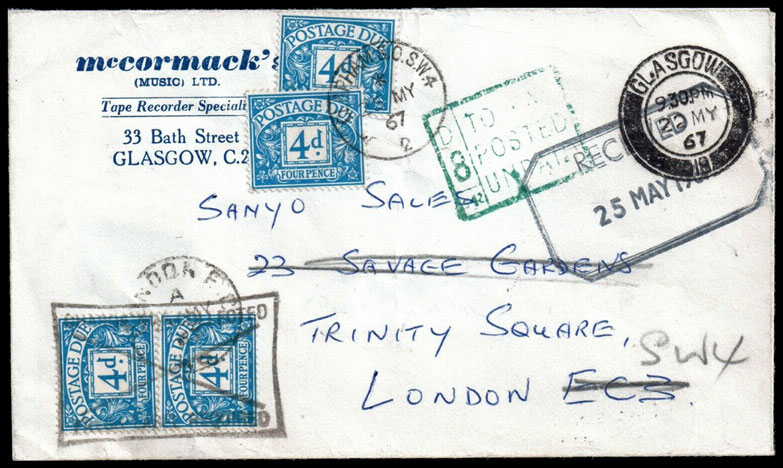
Following the first Elizabethan stamps, which were printed on Tudor Crown paper and St. Edward’s Crown paper (after damage to the dandy roll in early 1955), the watermark was changed to Multiple Crowns when the decision was taken to issue regional stamps and it was thought that Scotland might object to “E2R” on its stamps. Three new values were issued on Multiple Crowns paper: 6d in 1962, and 10s & £1 in 1963.
Postage Dues continued to be printed in letterpress by Harrison & Sons on sheet-fed machines, giving the possibility of inverted watermarks. Beginning in 1964, cream paper was gradually replaced by a whiter paper.

Sideways

Sideways-inverted
Watermarks shown as seen from the front of the stamp.
| Cream | Whiter | ||
|---|---|---|---|
| ½d | Orange | 18 Oct 1961 | 22 Sept 1964 * |
| 1d | Violet-blue | 9 May 1960 | 1 Mar 1965 * |
| 1½d | Green | 5 Oct 1960 | † |
| 2d | Agate | 14 Sept 1959 | 1 Mar 1965 * |
| 3d | Violet | 24 Mar 1959 | 1 June 1964 * |
| 4d | Blue | 17 Dec 1959 | 3 Mar 1964 * |
| 5d | Yellow-brown | 6 Nov 1961 * | 9 June 1964 * |
| 6d | Purple | 29 Mar 1962 | 30 Jan 1964 * |
| 1s | Ochre | 11 Apr 1960 | 28 Aug 1964 * |
| 2/6 | Purple/Yellow | 11 May 1961 * | — |
| 5/- | Scarlet/Yellow | 8 May 1961 * | — |
| 10/- | Blue/Yellow | 2 Sept 1963 * | — |
| £1 | Black/Yellow | 2 Sept 1963 | — |
* Known with watermark sideways-inverted.
† The 1½d Green was not issued to Post Offices after 31 Jan 1965 and was withdrawn from the Philatelic Bureau on 26 Apr 1965. Thus, there were no 1½d printings on whiter paper.
Varieties
Click the images to enlarge.
S&T Joined occurs in several positions, on different values.
“Q” for “O” in “POSTAGE” occurs at row 1/1.
Stop after “THREE” occurs in several positions, mainly row 1.
Tail to “2” occurs at row 11/10.
The 1d is known bisected at: Chieveley, Newbury (1962 see below, 1963); Henlan, Llandyssil (1961); Mayfield (1962); St Albans (1964).
The 2d is known bisected at: Doncaster.
Covers
Click the images to enlarge.






